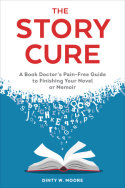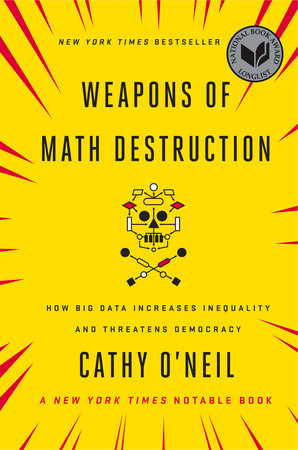Lately I've been interested in reading the experiences of doctors. They seem to me to be, generally, a very focused and persistent lot. That's what led me to pick up Crossings: A Doctor-Soldier's Story by John Kerstetter.
It's an engrossing and personal tale of how the author came from an impoverished background on an Indian reservation to become a successful businessman and then take the chance to pursue medicine later in life. When emergency medicine wasn't quite thrilling enough, he decides to join the military. I totally enjoyed reading about the author's determination, thought processes, and the chance to see war through the eyes of someone trained both to heal and to kill.
I received a free copy from Blogging for Books, but am always honest.
Sunday, December 3, 2017
Friday, September 1, 2017
Find A Doctor for Your Writing Ailments
Is it totally silly to order a book about finishing a book when you haven't even started a book? Baby steps, I guess. I recently received The Story Cure by Dinty W. Moore and it seems a great volume whether you're currently writing a book or not. From the chapters I've flipped through, Moore is trying to get us to think back to why we write, what purpose stories even have in the world, and the essential elements that every story must have. I think these are all great things for any writer to reflect on.
Thanks to Blogging for Books for sharing a copy with me.
Wednesday, July 12, 2017
Unfinished Books Make Me Sad
For book lovers, is there anything worse than getting really excited to read a book, then actually getting it and staring at its cover for weeks while you finish some other reading, only to be just totally not into it?
Unfortunately, that's what happened with the book The Roanoke Girls by Amy Engel, which I actually got a free copy of from Blogging for Books and feel terrible about not being able to finish. But, it just seemed so melodramatic that I couldn't bring myself to keep reading.
Has anyone read this one? What did you think? Was I totally wrong and it's awesome, or is it totally predictable and lame?
Unfortunately, that's what happened with the book The Roanoke Girls by Amy Engel, which I actually got a free copy of from Blogging for Books and feel terrible about not being able to finish. But, it just seemed so melodramatic that I couldn't bring myself to keep reading.
Has anyone read this one? What did you think? Was I totally wrong and it's awesome, or is it totally predictable and lame?
Sunday, March 26, 2017
A Bright Voice in the Fight for Social Justice
Many great books on social justice topics have been released in the past few years, and Shaka Senghor's Writing My Wrongs stands out among them. Shaka tells the story of his incarceration at age 19 for a murder he committed while dealing crack after leaving the home he no longer felt wanted in. It's the story of still too many youth today, and Shaka's detailed memories help illuminate not only the struggle of people in prison, but the black youth forgotten and condemned by society to lives without hope and robbed of inspiration.
Having recently read that 47% of Detroit residents are functionally illiterate, Shaka's story of building his knowledge and becoming a light for others out of the darkest place is powerful and extremely relevant, not only for his success story but for his candid look at the racism and black oppression that still plagues our society in the United States.
I am thankful I received a review copy from the publisher, but my opinions are my own.
Wednesday, March 8, 2017
The Enigma of the Inkblot: Review of The Inkblots by Damion Searls
As Damion Searls states in his introduction to The Inkblots, the Rorschach test is often covered with skepticism in psychology education. When I was a student, Rorschach was presented as somewhat of a quack. Asking someone to tell you what they see in an inkblot is almost laughable. Or, is it? Does the test really reveal things which other modes of psychoanalysis cannot seem to grasp? Does it matter which inkblots are used or if someone has already seen one of the inkblots? How were the inkblots developed and who was Rorschach?
The Inkblots is the book that finally, and thoroughly, addresses these questions and unearths the history of a much-discussed topic in psychology. This is a well-written and enlightening read for any psychology lover or anyone who's ever wondered about the significance of those eponymous blots.
Thanks to Blogging for Books, I received a review copy, but all opinions are my own.
The Inkblots is the book that finally, and thoroughly, addresses these questions and unearths the history of a much-discussed topic in psychology. This is a well-written and enlightening read for any psychology lover or anyone who's ever wondered about the significance of those eponymous blots.
Thanks to Blogging for Books, I received a review copy, but all opinions are my own.
Monday, February 20, 2017
Black History Month Reading: Democracy in Black by Eddie S. Glaude Jr.
I think Black History Month is a great time to read about the politics of race in the United States. Not to mention having a president that wants to ban people of certain religions and erect walls to keep people of other races out.
Democracy in Black is a startling reminder that this country is not equal. The author does a great job of outlining facts and laws that prove this fact to be true again and again. Our country has constructed an inextricable web of racial oppression, and Glaude shows us exactly how it was done. This is an essential read to begin to understand the real distribution of power and opportunity, and who is making it that way.
Though I was happy to receive a review copy from Blogging for Books, all opinions are my own.
Tuesday, January 17, 2017
The Scary (But Not the Scariest) Truth About Big Data!
By now, you're probably sick of hearing about "big data," "analytics," and everything in between. We've heard the story of a pregnant teen's father finding out she's pregnant from a Target mailing for diapers, but that's not as scary as it gets. In Weapons of Math Destruction, former quant Cathy O'Neil exposes the shaky logic that many data models are built upon.
If you love math, you will definitely like this book, but everyone who has a belief in "the system" will be petrified by what this book reveals.
How many times has someone said to you, "Well, the numbers don't lie" or "The computer said it, not me." Well guess what? Computers need to be programmed by people, and the people doing the programming don't understand logical fallacies enough to be allowed to do so.
While the book itself slogs along a bit, the concepts covered are amazing.
Thanks to Blogging for Books for this copy!
Thanks to Blogging for Books for this copy!
Subscribe to:
Comments (Atom)


